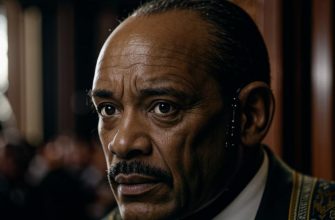Films about depersonalization explore the concept of a person feeling detached from themselves or their surroundings, often resulting in a sense of unreality or disconnection from their own identity. These films delve into the psychological and existential themes surrounding depersonalization, offering thought-provoking narratives and unique perspectives on the human experience.
Here is a list of existing films about depersonalization:
“Numb”, 2007
Director: Harris Goldberg

A successful writer, Hudson, begins experiencing depersonalization after a series of traumatic events. As he struggles to navigate his disconnection from reality, he embarks on a journey of self-discovery and attempts to find meaning in his life.
Starring: Matthew Perry, Lynn Collins, Kevin Pollak, Bob Gunton, Helen Shaver, William B. Davis, Mary Steenburgen, Ben Immanuel, Noah Dalton Danby, Monique Ganderton, Mark Acheson, Patricia Harras, Brad Ganes, Ingrid Torrance, Brian George, Graham Kosakoski, Jovanna Burke, Burkely Duffield, Suzanne Serwatuk, Angela Besharah, Jerry Rector, Benjamin Ayres, Donny Lucas, Barry W. Levy, Rachel Hayward, Reg Tupper, Melanie Yeats, Keegan Connor Tracy, Tony Alcantar, Peter Hall, Lyle St. Goddard, Linden Banks, Brett Delaney, Caroline Heisler, Mark Gash, Julia Benson, Beverley Breuer, Holly Eglinton, Michael Adamthwaite, Darcy Michael, Donna Yamamoto, Erica Van Briel, Nancy J. Lilley;
Production year: 2007;
Genre: drama, melodrama, comedy;
MPAA rating: r;
Duration: 93 min.;
Rating: IMDB: 6,5;
More information about the film “Numb” on the website imdb.com
“Anomalisa”, 2015
Director: Duke Johnson, Charlie Kaufman

This stop-motion animated film follows the life of Michael, a customer service expert who perceives everyone around him as identical, faceless beings. As he becomes increasingly isolated and detached, he meets Lisa, who challenges his perception of reality and offers a glimmer of hope.
Starring: David Thewlis, Jennifer Jason Leigh, Tom Noonan;
Production year: 2015;
Genre: animation, drama, melodrama, comedy;
MPAA rating: r;
Duration: 90 min.;
Rating: IMDB: 7,2;
More information about the film “Anomalisa” on the website imdb.com
“The Machinist”, 2003
Director: Brad Anderson

Trevor Reznik, a machinist suffering from chronic insomnia, begins to question his own sanity when he starts experiencing depersonalization. Haunted by a mysterious figure and his own guilt, Trevor embarks on a disturbing journey to uncover the truth behind his condition.
Starring: Christian Bale, Jennifer Jason Leigh, Aitana Sánchez-Gijón, John Sharian, Michael Ironside, Lawrence Gilliard Jr., Reg E. Cathey, Anna Massey, Matthew Romero Moore, Robert Long, Colin Stinton, Craig Stevenson, Ferran Lahoz, Jeremy Xido, Norman Bell, Nancy Crane, Richard Torrington, Buffy Davis, Reg Wilson, Ramon Camín, Christopher Hood, Marc Aspinall, Guillermo Ayesa, Daniel Ceren, Marta Rubio, Ewan Watson, Chike Johnson, Molly Malcolm, Jaume Mimó, Flora Álvarez, Juan Carlos Guzmán, Ina Liza, James DePaul, Oliver Moon;
Production year: 2003;
Genre: thriller, drama;
MPAA rating: r;
Duration: 97 min.;
Rating: IMDB: 7,6;
More information about the film “The Machinist” on the website imdb.com
“Fight Club”, 1999
Director: David Fincher
While not solely focused on depersonalization, “Fight Club” explores themes of identity and dissociation. The film follows an unnamed narrator who forms an underground fight club as an escape from his monotonous and dissociated existence.
Starring: Edward Norton, Brad Pitt, Helena Bonham Carter, Meat Loaf, Zach Grenier, Holt McCallany, Jared Leto, Eion Bailey, Richmond Arquette, David Andrews, George Maguire, Eugenie Bondurant, Christina Cabot, Sydney «Big Dawg» Colston, Rachel Singer, Christie Cronenweth, Tim DeZarn, Ezra Buzzington, Dierdre Downing-Jackson, Bob Stephenson, Charlie Dell, Rob Lanza, David Lee Smith, Joel Bissonnette, Evan Mirand, Robby Robinson, Lou Beatty Jr., Thom Gossom Jr., Valerie Bickford, Peter Iacangelo, Carl Ciarfalio, Stuart Blumberg, Todd Peirce, Mark Fite, Matt Winston, Joon B. Kim, Bennie Moore, Lauren Sanchez, Pat McNamara, Tyrone R. Livingston, Owen Masterson, David Jean Thomas, Paul Carafotes, Christopher John Fields, Anderson Bourell, Scotch Ellis Loring, Michael Shamus Wiles, Andi Carnick, Edward Kowalczyk, Leonard Termo;
Production year: 1999;
Genre: thriller, drama, crime;
MPAA rating: r;
Duration: 139 min.;
Rating: IMDB: 8,8;
“Synecdoche, New York”, 2008
Director: Charlie Kaufman

This surreal film directed by Charlie Kaufman tells the story of Caden Cotard, a theater director plagued by depersonalization and existential angst. As he attempts to create a massive replica of New York City within a warehouse, Cotard's reality becomes increasingly distorted, blurring the lines between fiction and reality.
Starring: Philip Seymour Hoffman, Samantha Morton, Michelle Williams, Catherine Keener, Emily Watson, Dianne Wiest, Jennifer Jason Leigh, Hope Davis, Tom Noonan, Paul Sparks, Sadie Goldstein, Peter Friedman, Charles Techman, Josh Pais, Daniel London, Robert Seay, Stephen Adly Guirgis, Frank Girardeau, Amy Wright, Jerry Adler, Lynn Cohen, Deirdre O'Connell, Kat Peters, John Rothman, Amanda Fulks, Frank Wood, Deanna Storey, Elizabeth Marvel, Laura Odeh, Mark Lotito, Daisy Tahan, Erica Berg, Raymond Angelic Sr., Cliff Carpenter, Timothy Doyle, Amy Spanger, Nick Wyman, Portia, Dan Ziskie, Chris McGinn, Robin Weigert, Gerald Emerick, Alvin Epstein, Rosemary Murphy, Tim Guinee, Kristen Bush, Greg McFadden, Barbara Haas, William Ryall, Joe Lisi;
Production year: 2008;
Genre: drama;
MPAA rating: r;
Duration: 124 min.;
Rating: IMDB: 7,5;
More information about the film “Synecdoche, New York” on the website imdb.com
“Persona”, 1966
Director: Ingmar Bergman
Directed by Ingmar Bergman, “Persona” explores the complex psychological relationship between an actress and her nurse. As the boundaries between their identities begin to blur, the film delves into themes of depersonalization and the fragile nature of the self.
Starring: Bibi Andersson, Liv Ullmann, Margaretha Krook, Gunnar Björnstrand, Jörgen Lindström;
Production year: 1966;
Genre: thriller, drama;
Age: 18+;
Duration: 85 min.;
Rating: IMDB: 8,1;
These films offer captivating narratives that delve into the complexities of depersonalization, inviting viewers to contemplate the nature of identity and the human psyche.
Conclusion: Films about Depersonalization
Films that explore the theme of depersonalization offer a unique and thought-provoking perspective on the human experience. Depersonalization is a dissociative disorder characterized by a distortion in how individuals perceive themselves, often feeling disconnected and as if they are watching a movie of themselves [[1]](https://psychcentral.com/lib/depersonalization-a-strange-mental-illness-captured-in-films-music-celebrity-confessions). While depersonalization is a complex and bewildering experience, these films provide a platform to delve into the psychological and emotional aspects of this condition.
One example of a film that explicitly deals with depersonalization is “Numb,” directed by Harris Goldberg [[1]](https://psychcentral.com/lib/depersonalization-a-strange-mental-illness-captured-in-films-music-celebrity-confessions). This film offers a rare exploration of the topic and provides insights into the challenges faced by individuals living with depersonalization. By depicting the protagonist's struggle with the disorder, the film sheds light on the confusion and fear that can accompany depersonalization.
Films about depersonalization often require a critical analysis that goes beyond the surface level. When analyzing these films, it is important to consider the creative decisions made by the filmmakers and how they construct the narrative and visual elements [[2]](https://advice.writing.utoronto.ca/types-of-writing/film-analysis/) [[3]](https://www.writing.northwestern.edu/resources-how-to-write-a-film-analysis/). By examining the formal features of the film, such as lighting, framing, and screenwriting, one can gain a deeper understanding of the director's intentions and the impact of these elements on the overall viewing experience [[3]](https://www.writing.northwestern.edu/resources-how-to-write-a-film-analysis/).
In conclusion, films about depersonalization provide a unique perspective on the human psyche and offer an opportunity for viewers to explore the complexities of this dissociative disorder. By delving into the psychological and emotional aspects of depersonalization, these films contribute to a greater understanding and empathy for individuals living with this condition.











